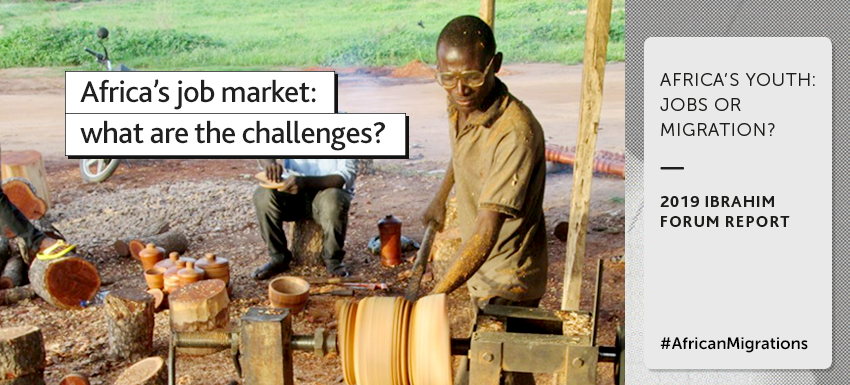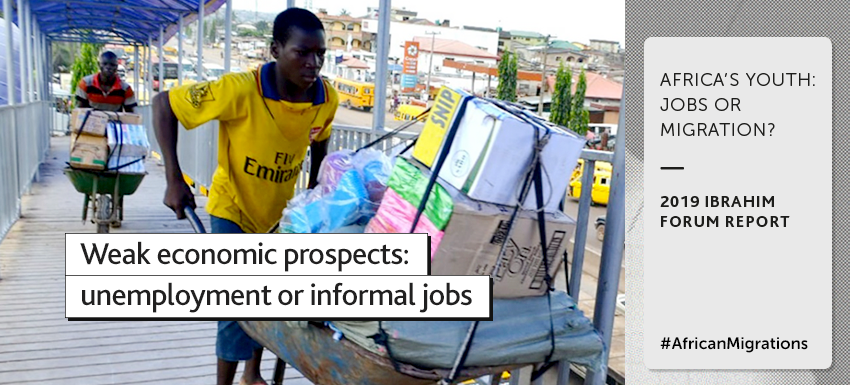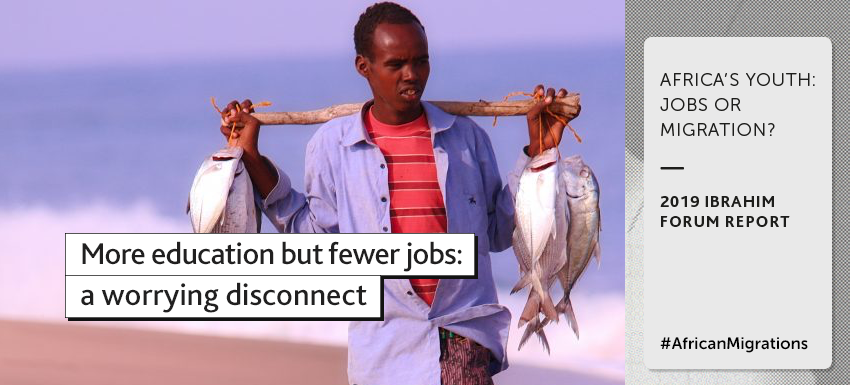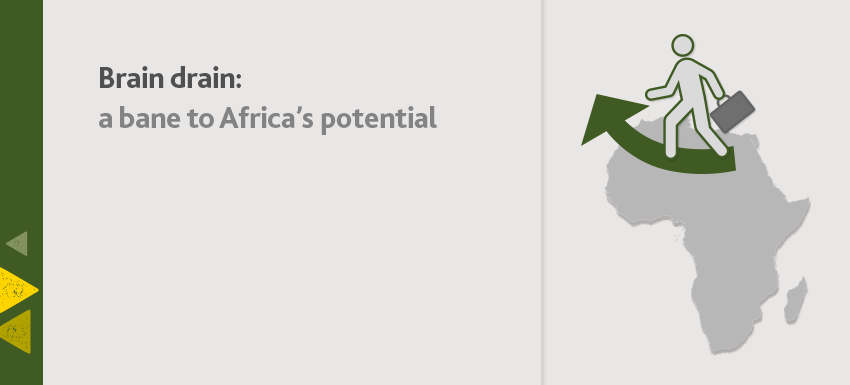Africa’s population has been on the increase over the past 50 years. The continent is home to over 1.2 billion people, over 60% of whom fall below the age of 25. The population of Africa is projected to double by 2050 to around 2.4 billion people.
But as Africa’s youthful population continues to rise, there is uncertainty over the continent’s preparedness to tap this resource for economic growth. Even as the continent struggles to provide opportunities for its current population, the question remains whether Africa is prepared to match the attendant social, political and economic challenges that will come when the population doubles by 2050. All over the continent, there is widespread frustration and agitation by and among young people over limited economic opportunities, growing corruption, rising unemployment, and limited opportunities for political participation. This growing frustration is increasingly manifested in migration of young people from the continent and the global appeal of terrorism and violent extremism and the alarmingly high number of young people being recruited into these extremism groups.
Despite recording significant improvement in human development over the past decade, Africa’s Youthful population continues to face significant challenges.
The AfDB, OECD and UNDP have indicated in the 2016 Africa Economic Outlook report that 9 out of 10 working youth between ages of 15-24, including those in urban areas, are either poor or likely to be poor. A significant number of young people, including those who have graduated from tertiary education are without jobs. In Ghana, a World Bank report has estimated that about 48% of young people are unemployed. With a growing population of over 180 million, according to Nigeria’s National Bureau of Statistics 45.6% of Nigerian youth are either unemployed or underemployed. As Nigeria battles to deal with the Boko Haram Insurgency, empirical evidence suggest the high levels of unemployment and frustration among the young population tend to be a driving force behind Boko Haram’s recruitment of young people for terrorist acts. Across the continent of Africa, the story has been the same with limited opportunities for young people. The 2016 Commonwealth Youth Development Index report also highlighted the poor performance of several governments across Africa in providing economic and employment opportunities for young people in the continent.
This notwithstanding, the continent is gradually becoming a hub for several start-ups and innovators who are breaking all odds and making significant contributions within the business and technology sectors. But even as the number of young social entrepreneurs rise, governments must live up to the expectation of creating a viable business environment for many of these initiatives to thrive. For many of the countries in Africa, the challenge has always been an unreliable power supply, rising inflation, corruption and more generally an unconducive business environment coupled with government harassment. It is becoming quite clear that our governments are incapable of providing employment for their teeming population. The onus therefore lies on our governments to ensure the private sector thrives in order to create opportunities for the youthful population.
It is popularly said that “young people are the future leaders for tomorrow”, but what many have failed to realise is that young people are already leaders of today.
Across the continent, young people are becoming more politically conscious and are rising to demand accountability and good governance from their leaders. The Arab Spring that swept through North Africa, and the large number of young people who protested in ousting Blaise Compaoré out of office in 2015 is clear demonstration of this growing consciousness among the youth of Africa. In Ghana, a growing frustration and youth unemployment played a key role in the defeat of John Mahama in the 2016 general elections; the first time a sitting president has lost an election in Ghana. With this growing vigilance of young people, and the increasing growth of youth activism and youth civil society, African governments are left with no choice than invest in and create an enabling environment, be it economically, socially or politically for young people to realise their potentials. Governments have ignored young people for a long time but with the current growing level of youth consciousness, a government that ignores the youth does so at their own peril.
The 2016 Africa Economic Outlook projected Africa as the second fastest growing economy in the world. Despite an uncertain global economy and a continuous drop in commodity prices, the economic projections of Africa, at least based on official statistics, look very bright. But while statistics and reports from development agencies and donors are encouraging and tell a story that perhaps something good might be happening, we must always ask ourselves how this outlook and projections are manifesting in the real lives of young people on the continent. Across the continent of Africa, a growing number of young people are looking at governments on a daily basis to deal with the growing frustrations they face.
A youthful population is like a double edged-sword; it could be channelled into a dividend for economic and social transformation with the right investment or it could explode into violent conflict with devastating consequences. With Africa’s youthful population, Africa is at a ‘tipping point’. What our leaders do going forward will ultimately decide the future of the continent. As I encourage young people to seek opportunities and make the best out of the continent, our governments must also uphold their part of the social contract. As a young person, I have no doubt, with the right investment and opportunities, Africa’s growing youthful population could be channelled into an economic boom.








